1. Speech, Language, Hearing Scientists
1.1. study and expand our knowledge of human communication processes and disorders
1.1.1. involved in the development of computer-generated speech that may be used in telephone answering systems, substitute voices for individuals who are unable to speak, and many new pur- poses.
1.1.2. help clinicians improve service to clients with speech disorders
1.1.3. Hearing scientists investigate the nature of sound, noise, and hearing. They may work with other scientists in the development of equipment to be used in the assessment of hearing.
1.1.4. They study the differences and similarities between languages
1.1.5. They develop and improve assistive listening devices such as hearing aids and telephone amplifiers to help people who have limited hearing.
1.2. Doctorate degree (PhD or EdD)
1.3. work in universities, government agencies, industries, and research centers
2. Aides
2.1. individuals who work closely with SLPs or audiologists.
2.2. Bachelors degree studying speech and hearing sciences
2.3. Works with the supervision/ under the instruction of an audiologist
2.3.1. Audiology assistants may conduct screenings, participate in calibration of audiological instrumentation, and engage in a variety of clerical tasks under the direction of an audiologist
2.4. Works with the supervision/ under the instruction of a certified Speech-Language Pathologist
2.4.1. Speech-language pathology assistants (SLPAs) typically participate in rou- tine therapy tasks, under the direction of an SLP. They may engage in clerical tasks and assist an SLP in the preparation of assessment and treatment materials.
3. Audiologists
3.1. identify, manage and prevent disorders of hearing and balance
3.1.1. hearing loss
3.1.1.1. Audiologists work to diagnose, treat, and monitor hearing loss due to age or other factors
3.1.2. balance disorders
3.1.3. Titinus
3.1.3.1. Audiologist helps to teach people to cope and help with ringing in the ears
3.1.4. select, fit, and dispense hearing aids
3.1.5. Cochlear implants
3.1.5.1. monitor and calibrate the implants
3.2. Doctoral Degree in Audiology (AuD / PhD / EdD)
3.2.1. preprofessional work and years of paid clinical experience
3.2.1.1. Certificate of Clinical Competence in Audiology (CCC-A) awarded by ASHA
3.2.1.1.1. states require a state license to practice there
4. Speech-Language Pathologists
4.1. Identify, treat, asses and prevent speech and communication disorders
4.1.1. work with patients with congenital or acquired speech and language disorders
4.1.1.1. swallowing disorder
4.1.1.2. cognitive communication disorder
4.1.1.3. speech disorder (behavioral or neurological)
4.1.1.4. language disorder
4.1.1.5. social communication disorder
4.1.1.6. Certificate of Clinical Competence in Audiology (CCC-SLP) awarded by ASHA
4.2. Masters or Doctoral degree in Speech-Language Pathology
4.2.1. complete required 25 hours of clinical observation, 9 months of clinical experience, 350 hours of clinical observation, pass the National Exam according to ASHA's standards
4.2.1.1. State Licensure (abide by the rules set forth by each state)
4.2.1.1.1. Ability to practice in the private and public hospitals, clinics, rehabilitation centers, Nursing care facilities
4.2.1.2. Certificate of Clinical Competence in Audiology (CCC-SLP) awarded by ASHA
4.3. Bachelor's or Masters degree in Speech-Language Pathology
4.3.1. Student teaching, Pass the National Teaching exam and receive Teaching Certification,
4.3.1.1. State Licensure (abide by the rules set forth by each state)
4.3.1.1.1. Ability to teach within a public or private school setting

